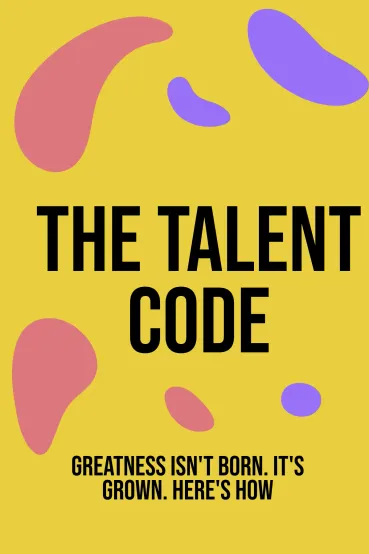
The Talent Code
Brief Summary
What makes a person good at something? Many people believe that talent is innate, but in reality, it can be acquired. “The Talent Code” tells you what stands behind talent and gives insight into what it takes to become a master in any field.
Topics
Key points
Key idea 1 of 7
Have you ever wondered what talent consists of? Well, the three main elements of the “talent code” are deep practice, ignition, and master coaching. Sounds simple enough, but the key is to combine those elements. Of course, they are still effective separately – at least to some extent. However, talent is a lot like a cooking recipe. If you miss an ingredient, you will likely still end up with a dish, but it might not be what you aimed for.
Talent doesn’t come easily. On the contrary, you would be right to associate talent with struggle and difficulty. The way you approach those difficulties can make or break the deal. So, instead of avoiding your problem areas, focus on them. For example, if you can’t complete that one exercise at the gym after months of training, take a minute to figure out what you are doing wrong. Maybe your technique is a bit off. Slow down, step back, and analyze what might be holding you back.
Don’t be afraid to make mistakes, though. Mistakes are necessary because they drive your practice forward. Taking the time to fix any mistakes will make your learning process more effective. The technique where people push themselves to the very edge of their capability is called *deep practice*, the first element of the talent code.
The next element is *ignition*. It is that spark that pushes you to enter deep practice. As this technique requires a lot of effort and strength, you need motivation to be consistent with it. Think of it as a car engine – it is that single spark that lights up your fuel. It is your motivation to push yourself further and further every time.
Last but not least, *master coaching*. Everyone needs a teacher, no matter which craft you take up. Experienced teachers are equally important in the early and the late stages of skill development. In the early stages, they help you build a strong foundation and prevent you from making beginner mistakes. In the latter stages, they help you keep up your progress and not lose motivation. A good teacher knows what you’re going through and can provide the necessary support.
FAQ
You may also like these summaries











